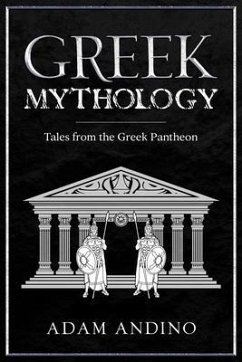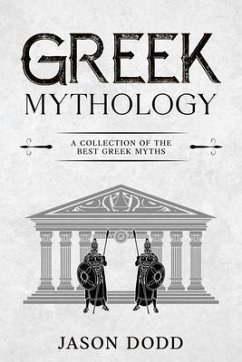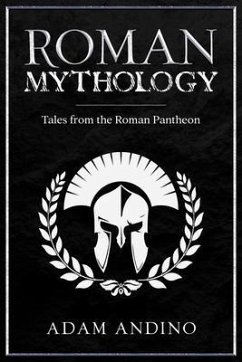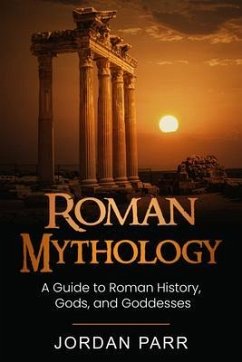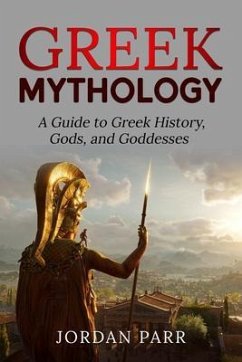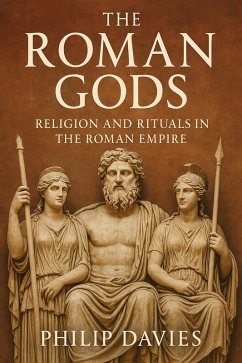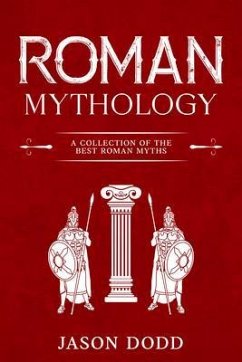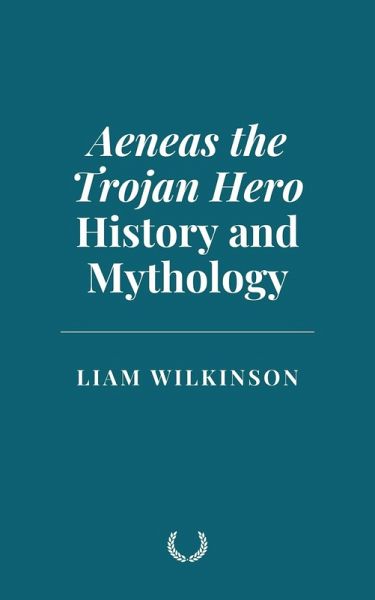
Aeneas the Trojan Hero: History and Mythology (eBook, ePUB)

PAYBACK Punkte
0 °P sammeln!
The Aeneid is an epic poem written by the Roman poet Virgil that narrates the journey of Aeneas, a Trojan prince and hero, as he leads the remnants of his people to the shores of Italy to establish the foundations of what will become Rome. Beyond its narrative of the founding of Rome, the Aeneid serves as a profound exploration of Roman virtues, duty, sacrifice, and leadership, encapsulating the moral and political ideals that were central to the Augustan regime. Aeneas' journey is not only a quest for survival but a fulfillment of a divine mission, illustrating the intertwining of fate and fr...
The Aeneid is an epic poem written by the Roman poet Virgil that narrates the journey of Aeneas, a Trojan prince and hero, as he leads the remnants of his people to the shores of Italy to establish the foundations of what will become Rome. Beyond its narrative of the founding of Rome, the Aeneid serves as a profound exploration of Roman virtues, duty, sacrifice, and leadership, encapsulating the moral and political ideals that were central to the Augustan regime. Aeneas' journey is not only a quest for survival but a fulfillment of a divine mission, illustrating the intertwining of fate and free will in the pursuit of Rome's imperial destiny. Virgil uses Aeneas' character to present an idealized Roman leader-one who prioritizes duty to the gods, the family, and the state over personal desires, embodying the virtues of pietas (duty), virtus (courage), and fides (loyalty).
The Aeneid also serves as a key political work, written under Augustus' patronage, that legitimizes the emperor's rule by tracing his lineage back to Aeneas and presenting the Roman Empire as the fulfillment of a divine plan. The epic is deeply infused with the moral justification for empire, depicting Roman imperialism not as mere conquest but as the spread of peace, law, and order, guided by a higher purpose. Aeneas' leadership, shaped by personal sacrifice and commitment to Rome's future, mirrors Augustus' own struggles to restore stability to Rome after the civil wars. By focusing on the values of continuity, family, and loyalty, Virgil links Rome's imperial greatness to the dedication of its leaders and the generations that preceded them.
Throughout the Aeneid, the complexities of leadership, the costs of empire-building, and the moral challenges of fulfilling a divine destiny are explored. The characters of Aeneas and his companions represent both the idealized Roman citizen and the personal sacrifices required for the establishment of an enduring empire. Virgil's epic, which connects myth, history, and divine purpose, continues to influence the Roman understanding of empire and leadership, shaping both the ideological foundations of Augustus' rule and the broader Roman imperial identity. Through Aeneas, Virgil offers a timeless vision of what it means to lead for the greater good, presenting the idea that empire-building, while fraught with personal loss and sacrifice, is ultimately a divinely appointed and morally virtuous endeavor.
The Aeneid also serves as a key political work, written under Augustus' patronage, that legitimizes the emperor's rule by tracing his lineage back to Aeneas and presenting the Roman Empire as the fulfillment of a divine plan. The epic is deeply infused with the moral justification for empire, depicting Roman imperialism not as mere conquest but as the spread of peace, law, and order, guided by a higher purpose. Aeneas' leadership, shaped by personal sacrifice and commitment to Rome's future, mirrors Augustus' own struggles to restore stability to Rome after the civil wars. By focusing on the values of continuity, family, and loyalty, Virgil links Rome's imperial greatness to the dedication of its leaders and the generations that preceded them.
Throughout the Aeneid, the complexities of leadership, the costs of empire-building, and the moral challenges of fulfilling a divine destiny are explored. The characters of Aeneas and his companions represent both the idealized Roman citizen and the personal sacrifices required for the establishment of an enduring empire. Virgil's epic, which connects myth, history, and divine purpose, continues to influence the Roman understanding of empire and leadership, shaping both the ideological foundations of Augustus' rule and the broader Roman imperial identity. Through Aeneas, Virgil offers a timeless vision of what it means to lead for the greater good, presenting the idea that empire-building, while fraught with personal loss and sacrifice, is ultimately a divinely appointed and morally virtuous endeavor.
Dieser Download kann aus rechtlichen Gründen nur mit Rechnungsadresse in A, B, CY, CZ, D, DK, EW, E, FIN, F, GR, H, IRL, I, LT, L, LR, M, NL, PL, P, R, S, SLO, SK ausgeliefert werden.




